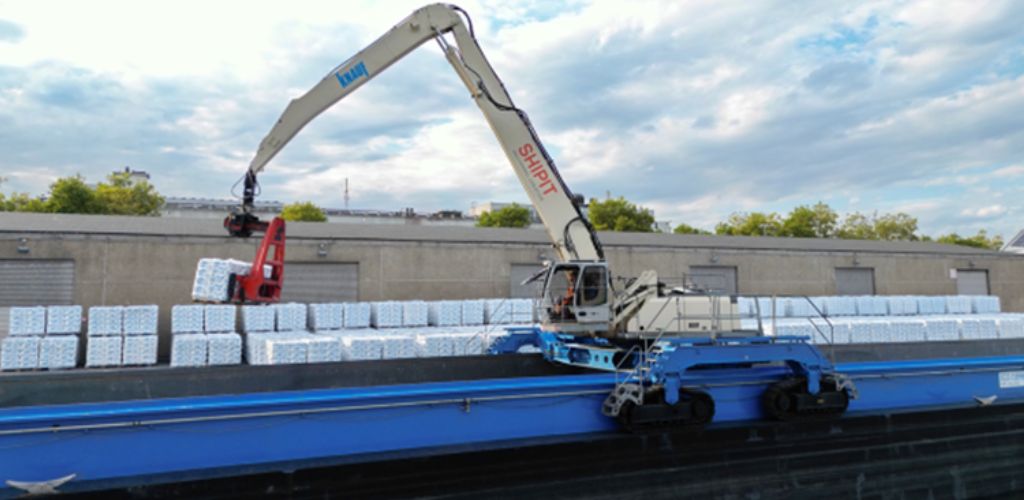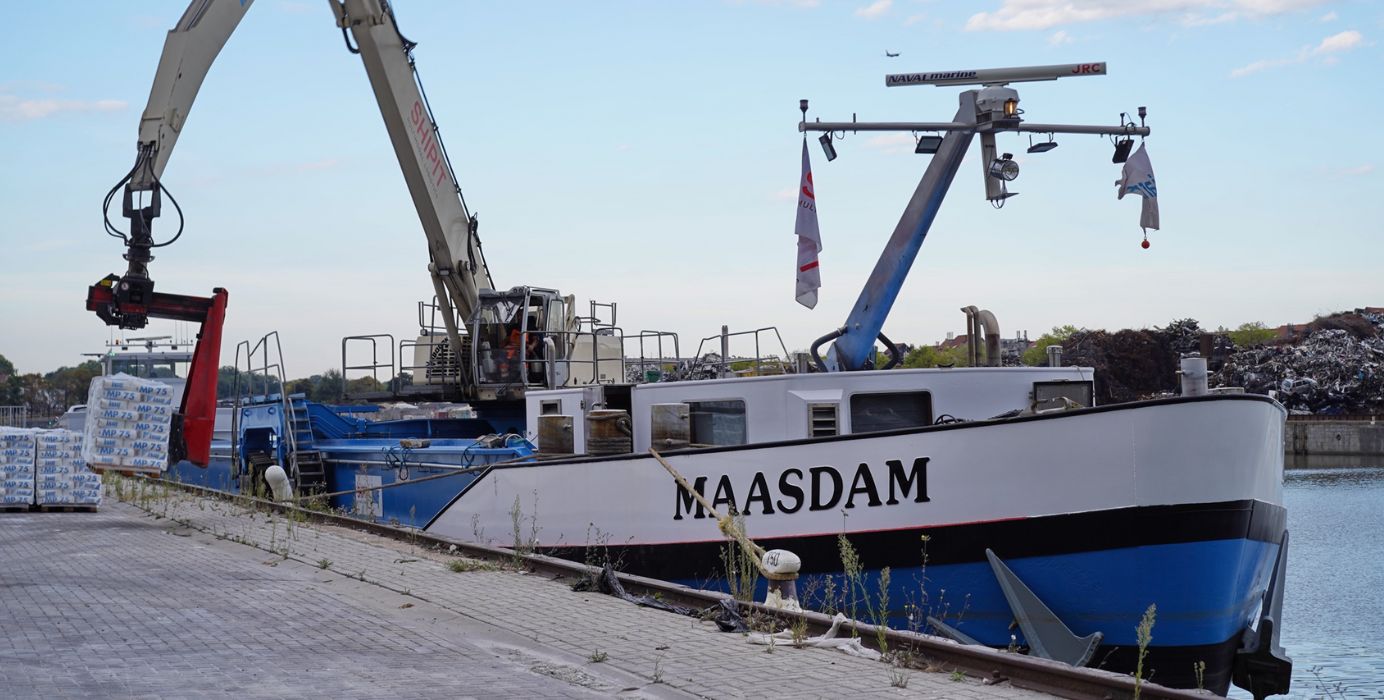Shipit Multimodal Logistics is a Belgian company specialising in inland shipping, multimodal transport, storage, transhipment and urban logistics, with terminals in Brussels and Wielsbeke. Since 2019, Shipit has developed the Brussels Construction Consolidation Centre (BCCC), which now has two locations in Brussels. Deliveries of building materials are bundled at these locations. Building materials will be delivered to the Consolidation Centre by truck or ship and then transported from one of the two locations by consolidated truck or even barge to the end customer. Efforts are being made to avoid deliveries with lightly loaded or nearly empty trucks to enhance the efficiency and sustainability of construction deliveries. In this sense, up to 50% of truck journeys are saved or partially shifted to the waterways, which reduces noise, mobility issues, hinder and GHG emissions.
Images of the service


Some interesting key facts:
| Name of service | Brussels Construction Consolidation Centre (BCCC) |
| Operator | Shipit, Port of Brussels |
| Market Segment | Construction Materials |
| Region | Rhine (Brussels) |
| Launch year | 2019 |
| Automation | Currently partial automation with remote control (3), in the future: fully automated operation (5). |
| Barge Capacity | 1200 – 4000 t |
| Fleet Size | 10 own barges + 20 insourced |
| Ship Length | 80-105 meters |
| Automation | Digitalisation of storage management and monitoring |
| Equipment | On-board cranes for 2 ships, also trucks with cranes |
Some more insights about the service
The BCCC offers an interesting logistics concept that combines road and waterway transport, aiming to increase truck capacity utilisation by consolidating deliveries. This approach helps to avoid empty journeys, thereby reducing traffic jams, noise and CO2 emissions. The logistics concept relies on two consolidation centres in Brussels, which receive building materials via waterborne transport. These materials are supplied by various companies including Knauf, Xella, Marlu, and many others. From this consolidation centre, construction sites within a radius of approximately 5 km can be supplied by truck as a last mile operation. Whether individual journeys can be bundled with truck in order to maximise capacity utilisation per journey, and whether journeys can be made on a waterway if construction sites are located close to the water is being examined. Truck cranes are important for truck operation to enable flexible loading of heavy construction materials. One of the vessels used in this project is also equipped with an on-board crane and additionally another vessel will be fitted with an on-board crane.
The digitalisation of warehouse logistics, with partly inhouse developed IT support, enables precise monitoring and simplifies the bundling of traffic. Incoming and outgoing goods are recorded transparently and the circulation of goods in the warehouse can be increased, thus enabling the efficient utilisation of warehouse capacities. The consolidation centre in the south of Brussels has been under construction for one and a half year. This extends the area within which deliveries can be made. With two locations in Brussels, Shipit can cover 70% of the population and construction sites. A concept for a third, small location is also being explored for the delivery of parcels as a further business segment in the future.
Lessons learned and roll-out-potential
The BCCC successfully integrates inland waterway transport into urban logistics by using two locations in Brussels to consolidate construction materials for efficient, sustainable distribution by truck or barge. This flexible approach complements both transport types, enhanced by digitalised warehouse logistics and investments in on-board cranes. To summarise, success factors include targeted bundling of transport, investment in on-board cranes and the digitalisation of warehouse logistics. The main challenge is adoption by customers, who must take a step into the unknown, whereas trucks are more common and at first sight seem to be more convenient. Nevertheless, the BCCC has developed successfully since it was founded in 2019.
Shipit sees growing potential for the future in the BCCC business segment. The aim is not only to capture more market share in Brussels, but also to develop new locations in Belgium or other European countries. Furthermore, there is potential in every city that has severe mobility issues and various waterways running through it. One of the main challenges in this implementation is to gain local support.
In the future it is expected that restrictions for road transport will be applied to reduce emissions, favouring other modes of transport such as bikes. Brussels already introduced restrictions for road traffic following the so called “Good move plan”. Any kind of restrictions increases the competitiveness of the BCCC concept. With the two BCCCs, Brussels is prepared for the mobility of the future.
